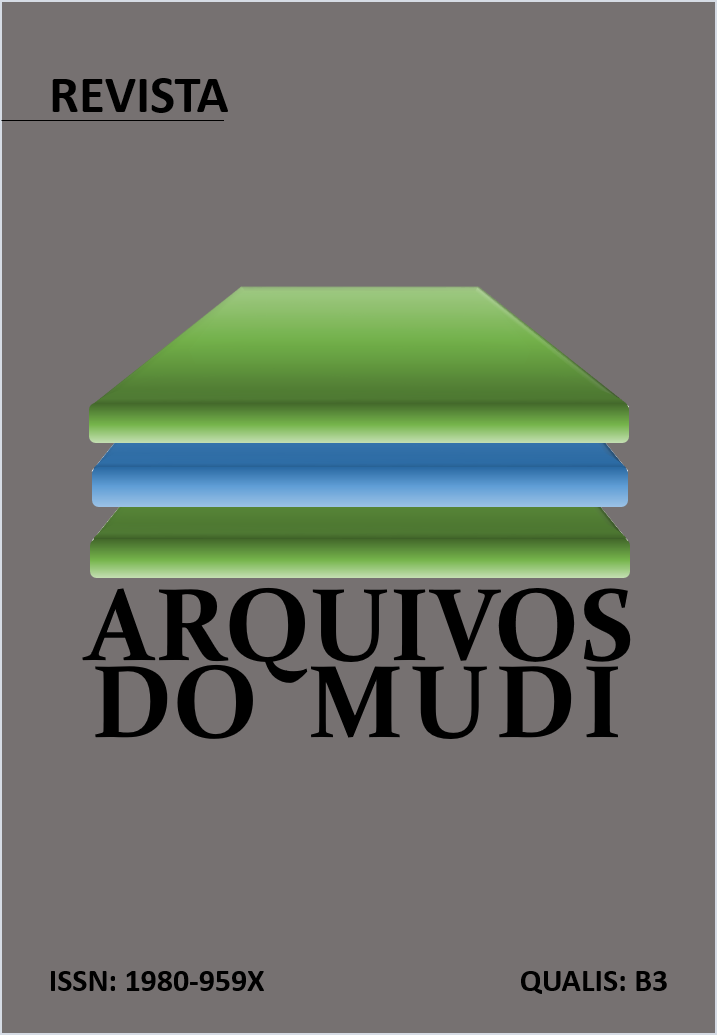EDUCATIONAL DOMINO TO STUDY THE ABO SYSTEM AND RH FACTOR
Abstract
Didactic games can act as a strategy to facilitate learning playfully. In this work, we developed and applied a domino-type educational game to assimilate and review concepts about the ABO system and the RH factor that was applied in a third-year-high school class. The game was made of a total of 12 kits, each consisting of 28 wooden pieces. The pieces are made of two regions, filled with information about phenotypes, genotypes and characteristics of blood groups in relation to the presence or absence of agglutinogens and agglutinins. The students qualitatively evaluated the benefits of using the developed educational game. The game was played with four players, but as some students were not present on the day of application, some had only three players and the specific rules for this situation were followed. Throughout the development of the games, it was possible to observe that the didactic dominoes favored the understanding of genetic terms that had not yet been assimilated by the students, such as genotype, agglutinogen and agglutinins. The game was considered difficult by some students and challenging by others. However, everyone actively participated in the game. The results point to the importance of using educational games to review and assimilate biology content, as they allow student leadership, encourage dialogue and potentially facilitate learning.
Downloads
References
DA CONCEIÇÃO, A. R.; MOTA, M. D. A.; BARGUIL, P. M. Jogos didáticos no ensino e na aprendizagem de Ciências e Biologia: concepções e práticas docentes. Research, Society and Development, 9, n. 5, p. e165953290-e165953290, 2020.
DE CASTRO, B. J.; FRASSON COSTA, P. C. Contribuições de um jogo didático para o processo de ensino e aprendizagem de Química no Ensino Fundamental segundo o contexto da Aprendizagem Significativa. Revista electrónica de investigación en educación en ciencias, 6, n. 2, p. 25-37, 2011.
FREIRE, P. Pedagogia da autonomia. Rio de Janeiro: Paz e Terra, 19897, 2022.
GONZAGA, G. R.; MIRANDA, J. C.; FERREIRA, M. L.; COSTA, R. C. et al. Jogos didáticos para o ensino de Ciências. Revista Educação Pública, 17, n. 7, p. 1-12, 2017.
MELO, A. C. A.; ÁVILA, T. M.; SANTOS, D. M. C. Utilização de jogos didáticos no ensino de ciências: um relato de caso. Ciência Atual–Revista Científica Multidisciplinar do Centro Universitário São José, 9, n. 1, 2017.
NETO, H. D. S. M. O jogo é a excalibur para o ensino de ciências?: apontamentos para pensar o lúdico no ensino de conceitos e na formação do professor. ACTIO: Docência em Ciências, 4, n. 3, p. 77-91, 2019.
ZUANON, Á. C. A.; DINIZ, R. H. S.; DO NASCIMENTO, L. H. Construção de jogos didáticos para o ensino de Biologia: um recurso para integração dos alunos à prática docente. Revista Brasileira de Ensino de Ciência e Tecnologia, 3, n. 3, 2011.
DECLARAÇÃO DE ORIGINALIDADE E DIREITOS AUTORAIS
Declaro que o presente artigo é original, não tendo sido submetido à publicação em qualquer outro periódico nacional ou internacional, quer seja em parte ou em sua totalidade.
Os direitos autorais pertencem exclusivamente aos autores. Os direitos de licenciamento utilizados pelo periódico é a licença Creative Commons Attribution 4.0 (CC BY ): são permitidos o acompartilhamento (cópia e distribuição do material em qualqer meio ou formato) e adaptação (remix, transformação e criação de material a partir do conteúdo assim licenciado para quaisquer fins, inclusive comerciais.

Recomenda-se a leitura desse link para maiores informações sobre o tema: fornecimento de créditos e referências de forma correta, entre outros detalhes cruciais para uso adequado do material licenciado.

















